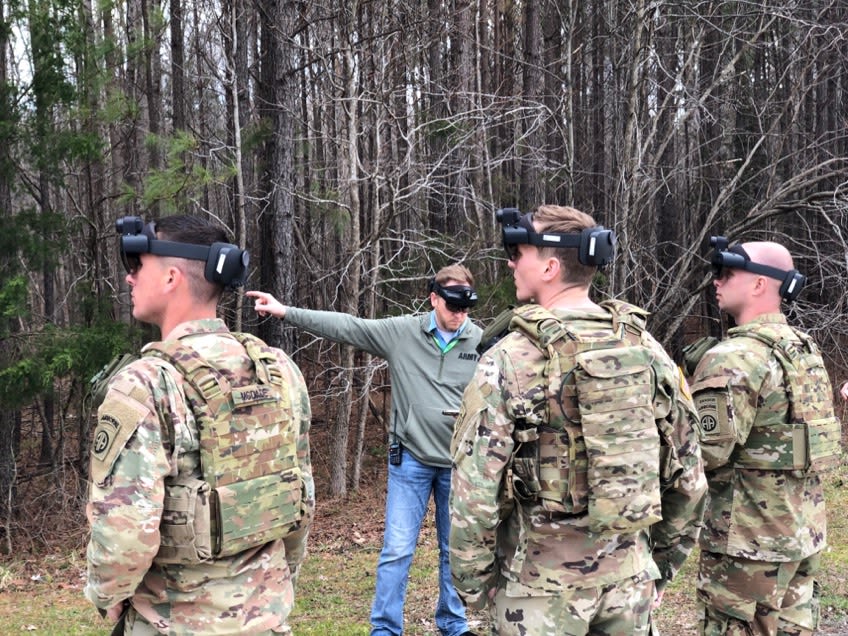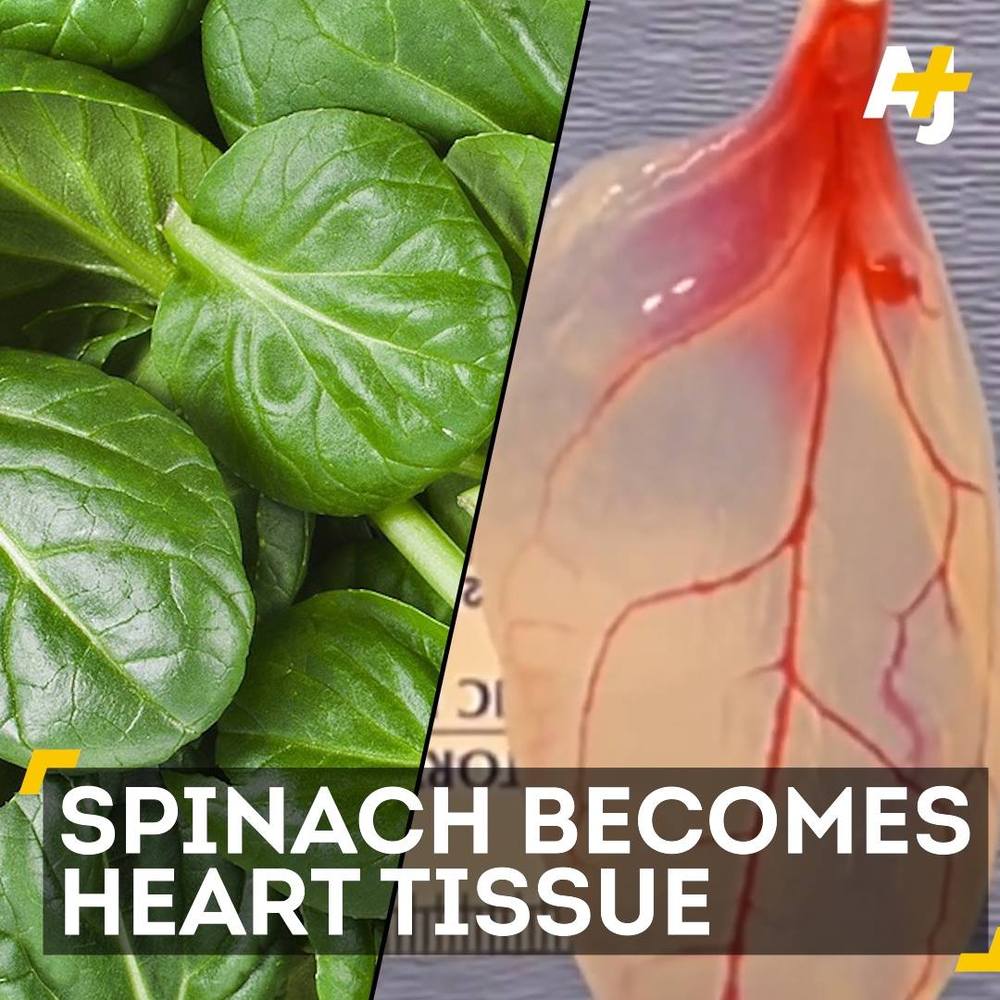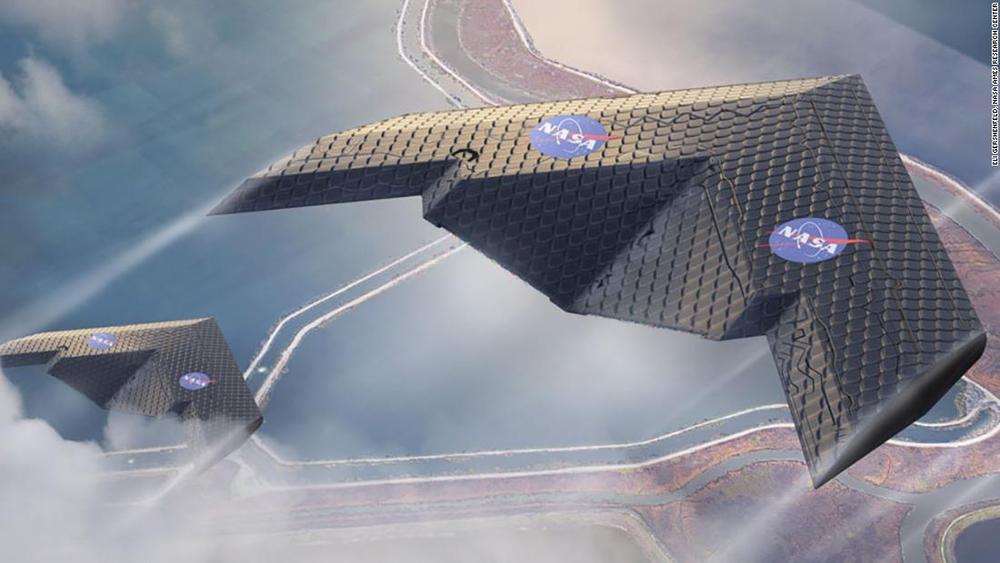Page 9210

Not sure how to post only a segment, but I found the first segment of this video interesting on the discussion of regulatory oversight of Facebook.
Facebook looks to the government for help censoring viewpoints, the old guard Democrats clash with the socialists, and we check the mailbag!
Apr 6, 2019
How the Army plans to use Microsoft’s high-tech HoloLens goggles on the battlefield
Posted by Klaus Baldauf in category: augmented reality
CNBC flew to Fort Pickett with Under Secretary Ryan McCarthy to test the Army’s IVAS headset, which it’s building with Microsoft.
Apr 6, 2019
Research holds key to China science push
Posted by Derick Lee in categories: food, government, science
Scientists called for a bigger say over research funding under a stifling bureaucratic application system. Yuan Zhiming, an agricultural scientist from the Chinese Academy of Sciences in Wuhan, said he spent so much time filling out funding applications that he did not have time for any research. Senior officials responded that they understood the need to speed up research for China to transform itself into an innovation powerhouse. Minister of Science and Technology Wang Zhigang said the government would overhaul funding management to give researchers more incentives.
The country has to address a lot of shortcomings, but when it sets course to remedy them and commits a bigger share of resources, it could become a leading scientific power within a decade.
Apr 6, 2019
Link Observatory Space Science Institute
Posted by Alberto Lao in categories: science, space travel
Apr 5, 2019
New plane wing moves like a bird’s and could radically change aircraft design
Posted by Michael Lance in category: transportation
Plane wings are traditionally strong, thick and sturdy but a team of researchers led by NASA has created a flexible wing that morphs as it flies.
Measuring 14 feet or four meters wide, the new wing is constructed from thousands of units that fit together and function in a similar way to a bird’s wing, says one of the report’s authors, NASA research engineer, Nick Cramer.
Apr 5, 2019
Head Transplant: How far have we come?
Posted by Paul Battista in category: biotech/medical
One of the research’s lead investigators, Michael Hill, said in a press release, “We envision this new technique as a low-cost office procedure done under local anesthesia. The whole process would take about five minutes.”
While currently in the process of arranging licensing for their procedure, the researchers are already looking toward using it with other collagen tissue such as tendons, and even corneas for the correction of vision issues. In animal tests, they’ve already had some success with reshaping a cornea using a 3D-printed contact lens painted with electrodes and to which they applied electrical current to soften the cornea. This is especially exciting due to the structure of its collagen fibers. Says Hill during the presentation, “It turns out that in order to remain transparent, the [layers of] collagen fibers are all perfectly aligned.” Molecular surgery allows correction of the cornea without disrupting that required layering.
Apr 5, 2019
Using AI to Make Better AI
Posted by Quinn Sena in categories: information science, robotics/AI, space travel
Next month, however, a team of MIT researchers will be presenting a so-called “Proxyless neural architecture search” algorithm that can speed up the AI-optimized AI design process by 240 times or more. That would put faster and more accurate AI within practical reach for a broad class of image recognition algorithms and other related applications.
“There are all kinds of tradeoffs between model size, inference latency, accuracy, and model capacity,” says Song Han, assistant professor of electrical engineering and computer science at MIT. Han adds that:
“[These] all add up to a giant design space. Previously people had designed neural networks based on heuristics. Neural architecture search tried to free this labor intensive, human heuristic-based exploration [by turning it] into a learning-based, AI-based design space exploration. Just like AI can [learn to] play a Go game, AI can [learn how to] design a neural network.”

















